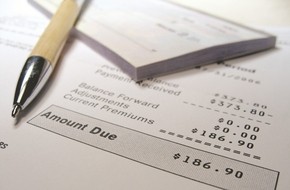When the temperature rises, you might find your electric and gas bills increase, too. Spring is a great time to try out new ways you can save money on your home utilities—leaving you some extra funds to pay down debt, invest, or even put towards a summer vacation!
Here are a few simple and inexpensive ways you can trim your spring-weather utility bills, from energy.gov.
Use natural ventilation. If you live in a climate where it’s much cooler at night than during the day, turn off your cooling system. You can open the windows and let some fresh air circulate, free of charge.
Be sure to close the windows, blinds, and curtains in the morning to keep the hot sun from raising indoor temperatures. If you want to go one step further, you can learn about how to improve the heat efficiency of your window coverings.
Turn on the fans. Did you know that using a ceiling fan will effectively allow you to set the temperature 4 degrees higher with the same comfort level? Just remember to turn fans off when you leave, since the cooling effect created by the breeze only works for people, not rooms.
It’s a good idea to use fans in the bathroom to dissipate heat and humidity as well, and make sure they’re ventilated to the outside—not the attic. If you have fans in the laundry room and kitchen, spot ventilation can be very useful for lowering room temperatures.
Watch your thermostat. If you set your temperatures as high as possible when the weather’s warm, your air conditioner will turn on less often. Setting your thermostat lower than you normally would when you’re hoping to cool a room quickly won’t work, either, and it could result in an unnecessary added expense.
Keeping your home warm when you’re not there is also a good way to cut unneeded costs without sacrificing comfort. If you don’t have programmable thermostat, it’s still easy to raise the temperature when you return home.
Grill! In warm weather, you can avoid heating your home further by grilling outside. If you leave your hot oven off, you can also use your cooktop or microwave to keep temperatures lower.
Reduce hot water use. If you take shorter showers and only wash full loads of dishes and laundry, you can help reduce heat buildup in your home and save money on your water bill, too. Water heating can cost between 14% and 25% of the energy use in your home, so turning down the setting to “warm” (120° F) can save you loads, as well as prevent you from scalding your skin!
Use efficient lighting. Only about 10-15% of the energy used by incandescent bulbs is converted to light; the rest produces heat. Installing energy-efficient lighting in your home not only lowers heating costs, but electrical use as well. Find out more about efficient lighting here. Turn off the lights when you aren’t using them, and use natural lighting whenever possible.

